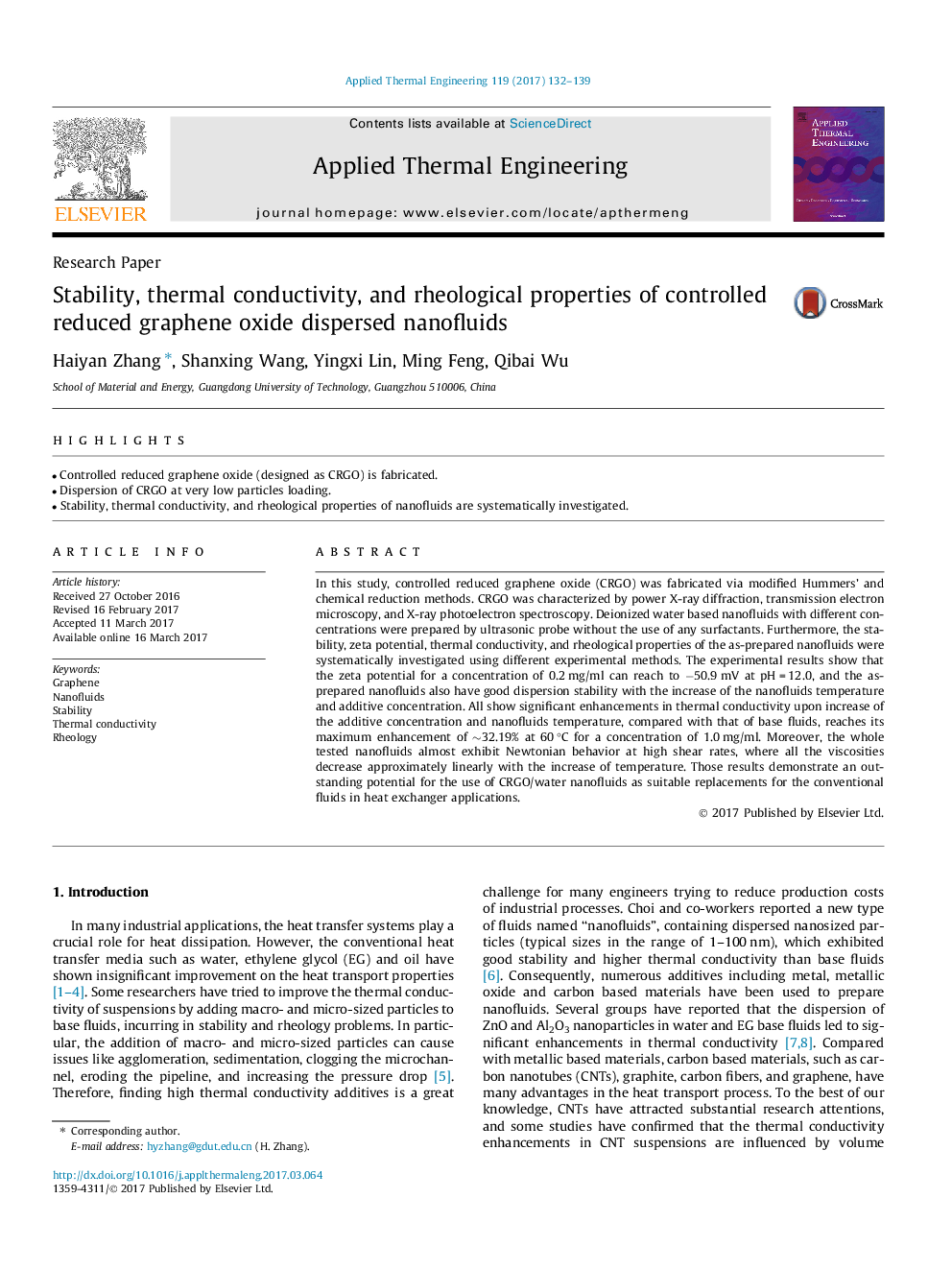| Article ID | Journal | Published Year | Pages | File Type |
|---|---|---|---|---|
| 4991275 | Applied Thermal Engineering | 2017 | 8 Pages |
Abstract
In this study, controlled reduced graphene oxide (CRGO) was fabricated via modified Hummers' and chemical reduction methods. CRGO was characterized by power X-ray diffraction, transmission electron microscopy, and X-ray photoelectron spectroscopy. Deionized water based nanofluids with different concentrations were prepared by ultrasonic probe without the use of any surfactants. Furthermore, the stability, zeta potential, thermal conductivity, and rheological properties of the as-prepared nanofluids were systematically investigated using different experimental methods. The experimental results show that the zeta potential for a concentration of 0.2 mg/ml can reach to â50.9 mV at pH = 12.0, and the as-prepared nanofluids also have good dispersion stability with the increase of the nanofluids temperature and additive concentration. All show significant enhancements in thermal conductivity upon increase of the additive concentration and nanofluids temperature, compared with that of base fluids, reaches its maximum enhancement of â¼32.19% at 60 °C for a concentration of 1.0 mg/ml. Moreover, the whole tested nanofluids almost exhibit Newtonian behavior at high shear rates, where all the viscosities decrease approximately linearly with the increase of temperature. Those results demonstrate an outstanding potential for the use of CRGO/water nanofluids as suitable replacements for the conventional fluids in heat exchanger applications.
Related Topics
Physical Sciences and Engineering
Chemical Engineering
Fluid Flow and Transfer Processes
Authors
Haiyan Zhang, Shanxing Wang, Yingxi Lin, Ming Feng, Qibai Wu,
